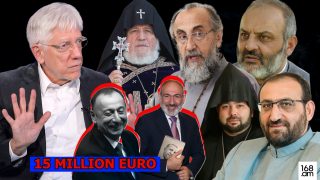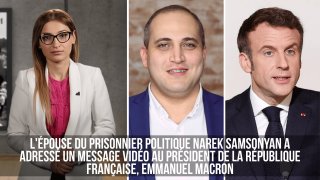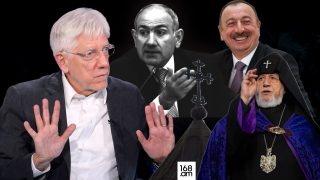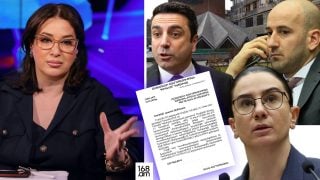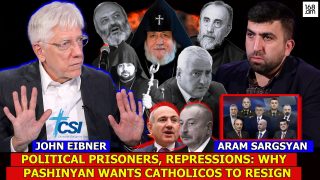
“We have a dangerous, instable environment threatening to Armenia-EU negotiations”
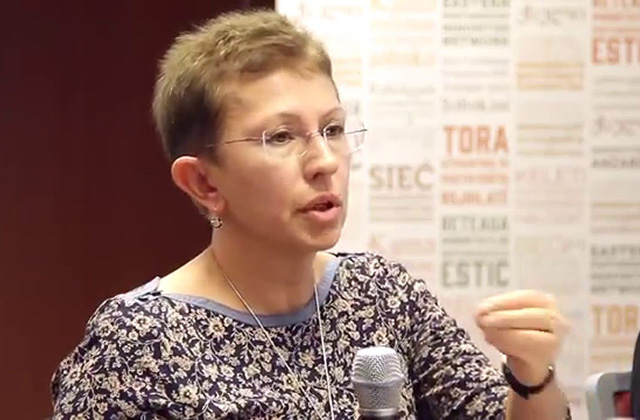
Interview with Larisa Minasyan, Executive Director of Open Society Foundations-Armenia.
Mrs. Minasyan, after 3 September 2013 representatives of the civil society, including you, have repeatedly reflected to the reasons of the occurrence, some were blaming the civil society in not having enough readiness and in responding to the situation improperly. Three years have passed, Armenia-EU relations have been resumed, which lessons did the civil society learn or did it learn?
When Ukrainian president Viktor Yanukovich adopted the resolution, which was accepted in Armenia, reflection of the society in Kiev was different, incomparably large number of people went into the streets, than in Armenia after September 3. If you mean this, the society was less ready and the civil society failed to direct or unite the public, then I think answer to this question is on different dimensions.
In my assessment, the only reason, introduced to the Armenian society as a ground for that decision is the most important —the issue of security, there was even a hint, that it’s a result of blackmail. The society perfectly realizes that threat, moreover, it may confront external threats, however, the society treated the issue with much responsibility, it understood that in case, when the issue was set that way, we’re a subject of such blackmail, then it’ll be difficult for us to make a decision, and claim for another decision from the authorities.
In my conviction the society should have done that. It seems to me, shortcoming of the civil society is available as well, it should have demanded an open, transparent reply, claim accountability for the future, that the first figure, who, upon his position, according to the then Constitution, seemingly could have made that decision, at least make the society communicate to this process. It didn’t occur and generally became a format, a line of action.
We observed big lack of that communication in case of nomination of the new Constitution and also edified big irresponsibility, satisfactory reply even on the level of NA MPs wasn’t obtained on—why, for which purpose, upon which results? As two weeks and four hours, obviously, to familiarize with the recent text, isn’t a responsibility. The shortcoming was great and is existent. However, it seems to me that here the civil society, not having the support and perception of mass society, that corruption isn’t that we have been given money from outside and said it’s bad, and we say—it’s bad, but corruption is a threat to national security. When we say there is corruption, there is propaganda and distortion of values, and we need to go to Baghramyan 26 and see what’s going on there, and what you are informed from the TV is quite different. Unfortunately, these are very upsetting issues. However, if life dictates that we, as a society, need to learn lessons, then it should.
Which is predominance of the civil society in the situation you mentioned?
I think the biggest issue is that we were able to reply to the questions among the society and oblige the Government make changes not for the reason that our policy developments dictate this, but because it’s a life requirement. We attempt to do that. Of course, resources are quite different. The very means of communication—TV and other propaganda, aren’t reachable to the civil society and it raises a big issue.
However, I think, even if the civil society records some shortcomings, then currently the society is becoming more demanding, and the civil society should raise from that demanding and lead the public, make the state and the authorities assume that responsibility. I don’t know it succeeds or not, I can’t say, the situation is yet unstable and indefinite.
Mrs. Minasyan, Armenia-EU negotiations have resumed. Prior to that, in this period as well as the necessity of process transparency was being touched upon as well, however, for the time being, they are not transparent. To your assessment, what’s going on in negotiations on account of concerns, that maybe this phase won’t be concluded by signing?
Indeed, the process is closed not for the reason that it’s a negotiation process and it should be closed, but for the reason that, in fact, there is no any expressed formulation on simple human language, what the purpose of these negotiations for the Armenian side is, that by these or those changes we may reach clear goals.
There is no such exchange of ideas between the authorities and the people, civil society and expert community. They may say what came out of that, which steps would follow, which field will face an issue. This is not redundancy.
Indeed, threats are available, they are much, starting from Nice and already from the issue, which is very dangerous, “By visiting Europe we bring terror.” No, we don’t, our terrorism is different: we have internal terrorism, which we fail to overcome. When the father tortures his child and wife, it’s not less terrorism. When corruption impoverishes country’s belongings, the defense field it’s not less terrorism either. Likewise issues came to be circulated after the 2001 terror in the USA, which led to very bad implications. Those implications expanded all over the world, and currently the U.S. also attempts to more and more clean those implications; it led to mass violations of rights, growth of terrorism, as violation of the right will only bring more counterattack.
I think, presently we have a rather serious, unstable environment, from which everything may be anticipated. Thus, clarifying the purpose of the civil society is very difficult. The point is, we attempted to assess the situation, understand and attempt to protect public interest. Time will show to which extent we’ll be able to.
Piotr Switalski, Head of EU Delegation to Armenia, divided EaP countries into two groups: ranking Armenia next to Azerbaijan and Belarus. If as a result of these negotiations a document is signed, will we be among these countries? Isn’t this dangerous?
I don’t draw conclusions from classifications, it bears a formal character, one group didn’t sign, and the other signed the Association Agreement (AA). If from the non-associate group Armenia has at least one, more concrete cooperation format, it differs from the others by that. Being in this or that group is secondary, it’s important what content will the document have, and how it’ll be able to lead us to a better group—democratic, prosperous, economically developed. It’s a primary issue, the rest is a matter of words and semantics.
By Araks Martirosyan





